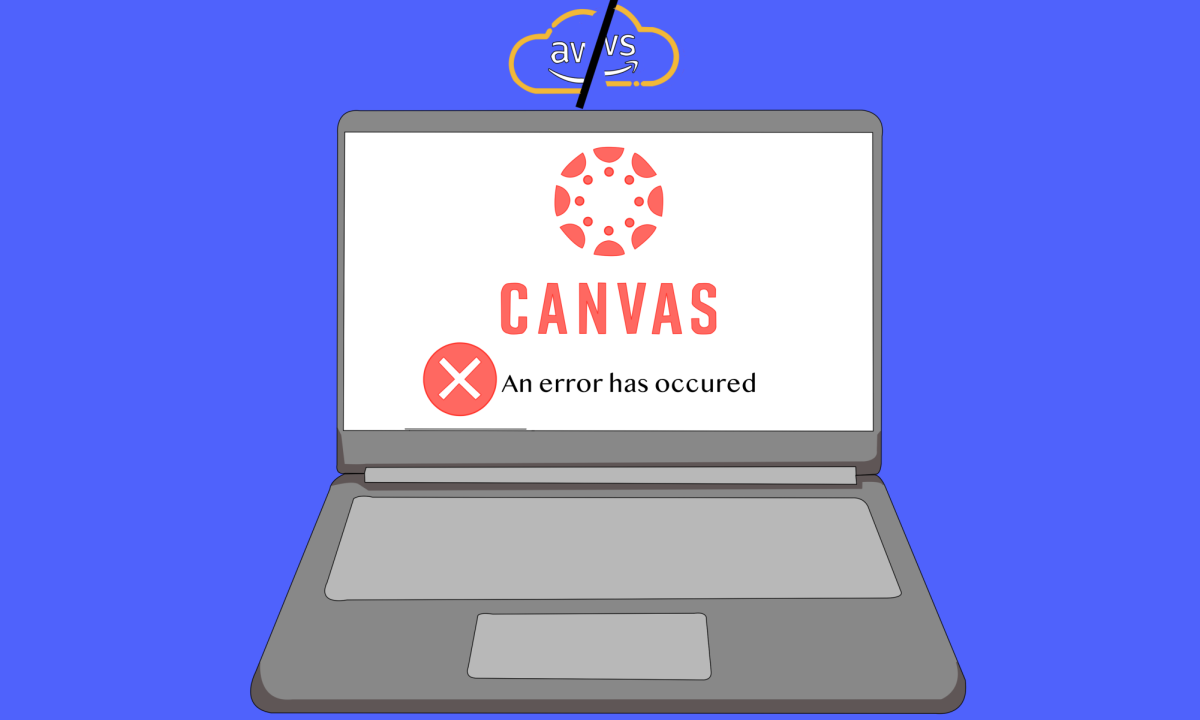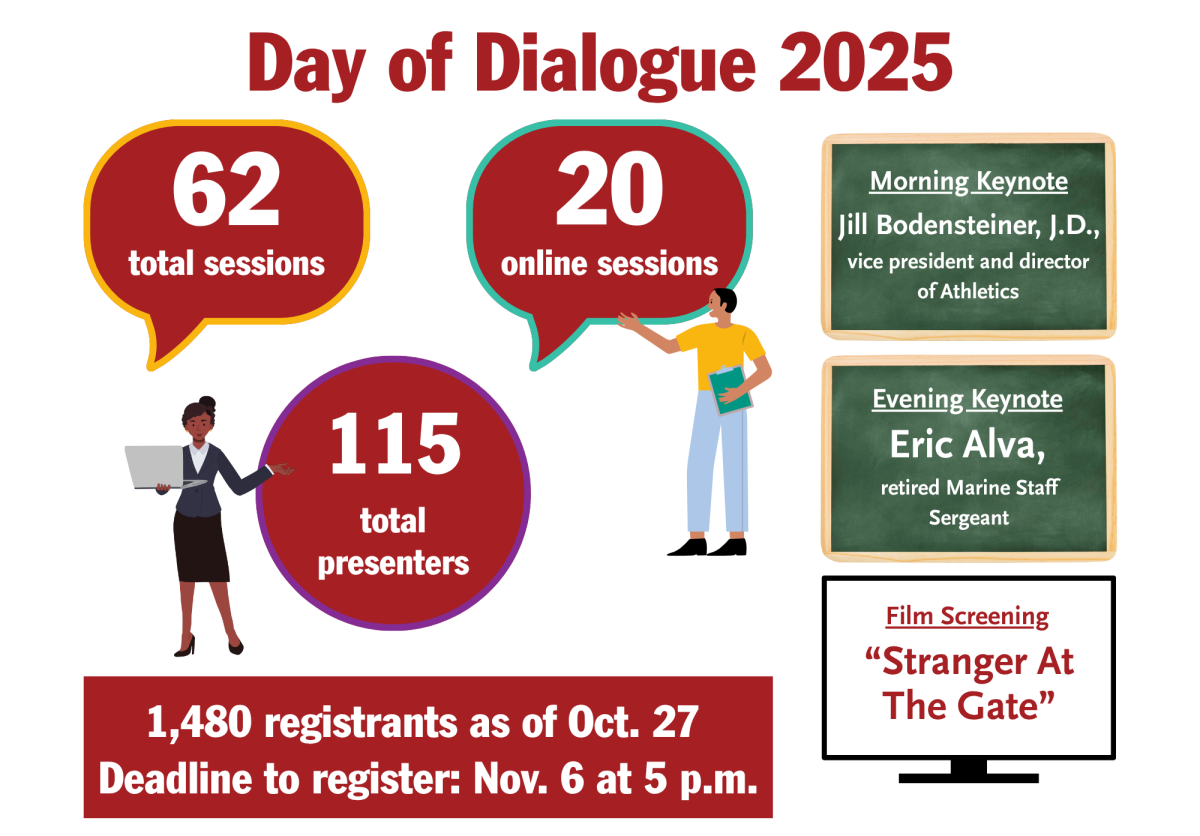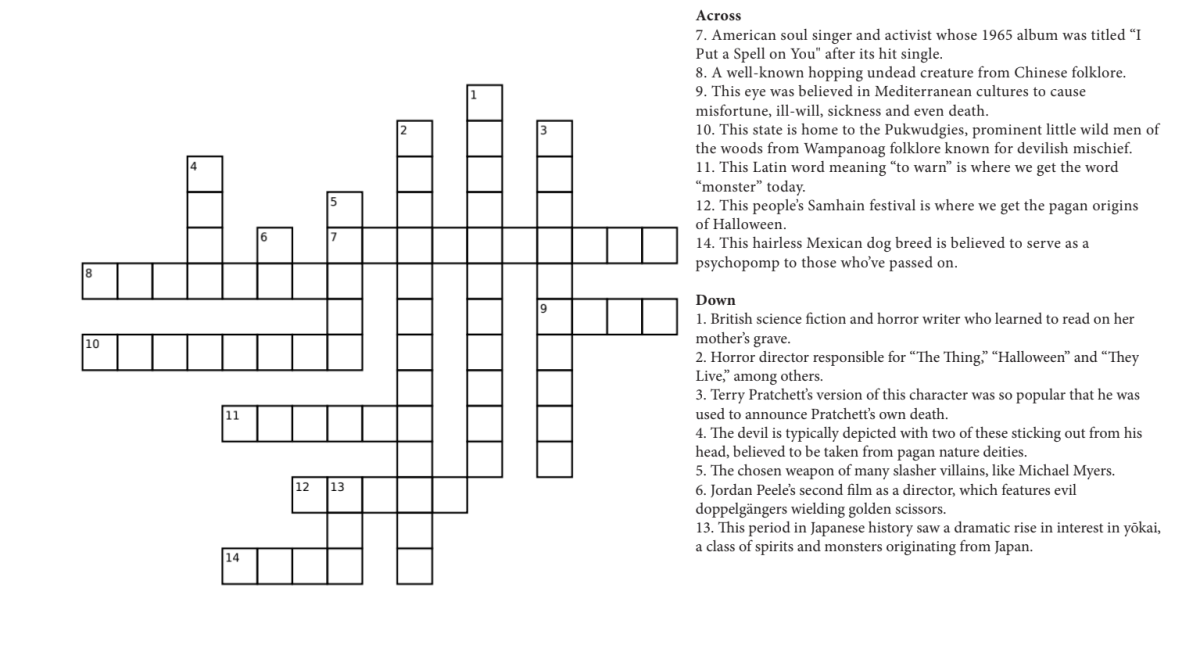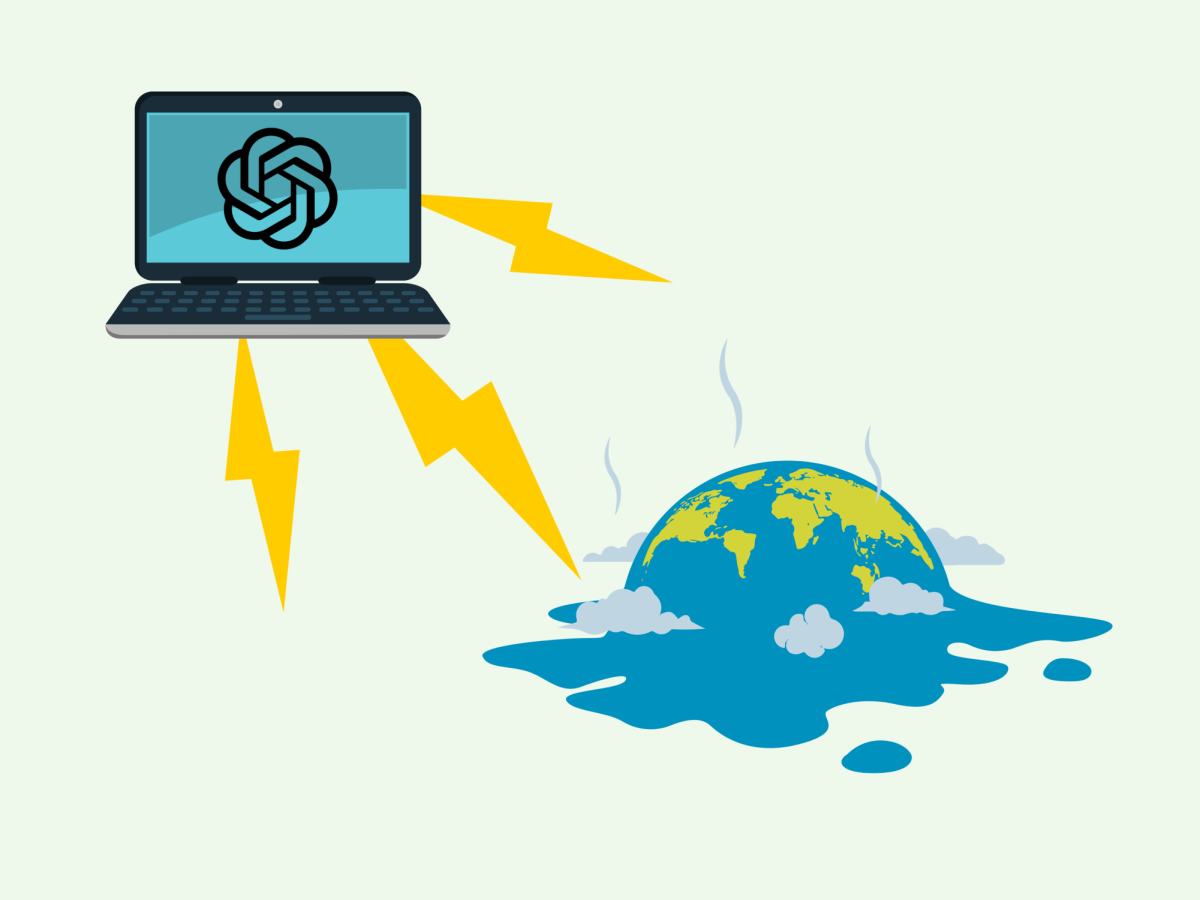While attending St. Joe’s, or any university, one may encounter people with varying views on artificial intelligence (AI). Some professors are strongly against using AI for any purpose, while some give assignments requiring AI, and then there are students who use ChatGPT to help them with essays and assignments, regardless of their professor’s opinion. Generative AI has become a prevalent topic in higher education due to its academic integrity implications, but there’s another major problem some may overlook: its environmental impact.
A study by Goldman Sachs revealed one search on ChatGPT requires 10 times more electricity than a regular Google search. Generating electricity requires water and energy, often from fossil fuels. Because of this, each query on ChatGPT emits about 4.32 grams of carbon dioxide, and one conversation — between 20 to 50 queries — uses roughly 500 milliliters (17 ounces) of water, which roughly equates to one water bottle (this water usage comes from the need to cool down data centers).
This may not seem like much, but it adds up. Using these numbers, if a student asks AI about 20 queries (one conversation) per week for two 14-week semesters (one school year), they’ll have emitted over 2.4 kilograms of carbon dioxide and wasted 14 liters (3.7 gallons) of water. If every undergraduate student at St. Joe’s used ChatGPT at this rate, that would mean roughly 67,592 liters (17,856 gallons) of water used and 11,587.2 kilograms of carbon dioxide emitted in a year. This would be the rough equivalent emissions of driving a gas car across the country ten times over (28,968 miles) and enough water to fill about six 12-foot-deep swimming pools.
Of course, not all students are using ChatGPT this often, and some are using it more. These numbers are simply an estimate of the problems the usage of generative AI among college students may cause. It may be helpful to use ChatGPT to aid with assignments on occasion, but it is important to keep in mind how much energy and water is required to produce its answers so quickly.

















































